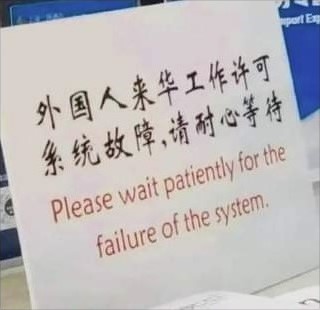…in China this time.
Last year, Chinese unemployment for those between the ages of 16 and 24 reached 20%—a record high and more than double what it was in 2018. The job shortage is particularly acute for graduates with advanced degrees, people who had expected the most from the job market because their families had sunk up to a third of their income into their education. During last autumn’s hiring season, around 45% of recent college graduates in China received no job offers, according to one published survey.
The problem isn’t that there aren’t enough jobs in China. Rather, it is the acute mismatch between the education and skills of those entering the job market and the jobs that need to be filled.
The manufacturing sector in China is experiencing a severe labor shortage: Four out of five Chinese manufacturers report that their workforces are falling 10% to 30% short of their needs, and the education ministry forecasts a shortage of 30 million manufacturing workers by 2025.
and
Diplomas, it turns out, have not necessarily translated into the skills sought by the high-tech sector or the smart-manufacturing companies that China aims to promote. The Chinese education system was designed during a period when most students would go on to work for state-owned enterprises. Today, their skills at standardized test-taking and their homogenous-looking CVs rarely meet the market economy’s demand for real-world experience, mental flexibility and individual passion.
also
The consequences of reduced expectations among unemployed youth are profound. Members of the young generation increasingly are putting off getting married and starting a family, breaking the traditions of a Confucian society. In 2021, there were only 7.6 million new marriages registered, a 38% drop from 2015. Meanwhile the birthrate has fallen to the lowest the country has ever seen.
